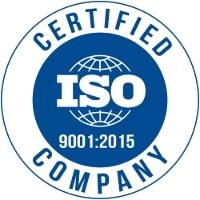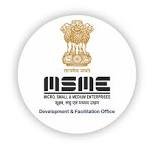
EPR Registration for Battery Waste Management Consultant
Introduction:
In recent years, the demand for batteries has experienced exponential growth, driven by investments aimed at developing long-term storage solutions to support the global energy transition. With a focus on replacing fossil fuel power with emission-free electrification, batteries have emerged as essential tools for energy storage. As the world increasingly adopts renewable energy sources, electricity usage is on the rise, leading to a surge in battery waste generation. Addressing the challenge of mounting battery waste requires proactive policies. In response to this need, the government introduced the Battery Waste Management Rules, 2022.
On August 22, 2022, the Ministry of Environment, Forests, and Climate Change unveiled the Battery Waste Management Rules, 2022, replacing the Battery (Management & Handling) Rules, 2001. These rules aim to ensure the environmentally sound management of used batteries.
EPR For Battery Waste Managment Rules, 2022
Registration of Producers: According to Rule 4 of the BWM Rules 2022, every Producer and person or entity involved in the manufacture of batteries shall be required to register with the CPCB through a centralised online portal, for which an application in Form 1 (A) must be submitted to the CPCB. Producer shall file for renewal of registration in Form 1(A) before sixty days of its expiry.
According to BWM Rules, 2022, A producer is defined as an entity that manufactures and sells, sells, and imports batteries, including refurbished batteries, including in equipment, under its own brand or its own brand produced by other manufacturers or suppliers.
BWM Rules function is based on the concept of Extended Producer Responsibility (EPR), according to which battery producers are responsible for collecting, recycling, and refurbishing waste batteries and using recovered materials from waste to make new batteries.
EPR for Producer of Battery: 'Extended Producer Responsibility' refers to the responsibility of any Producer of Battery to manage Waste Battery in an environmentally sound manner in order to protect human health and the environment from any adverse effects that may result from any substance contained in Waste Battery.
Registration of Refurbishers and Recyclers: All refurbishers and recyclers must register with the State Pollution Control Board on the centralised portal to receive a one-time registration.
Refurbishers and recyclers must submit quarterly returns in Form 4 detailing the quantity of used batteries collected or received from various producers or entities, the quantity of refurbished and recycled batteries, and the quantity of hazardous and/or other waste generated after refurbishment and disposal.
EPR For Battery Waste Management
The Ministry of Environment, Forestry, and Climate Change implemented the Battery Waste Management Rules in 2022 under the Environment (Protection) Act, 1986, replacing the Battery (Management and Handling) Rules, 2001.
The waste battery includes the used or end-of-life battery or its components, which are or are not hazardous in nature, and the pre-consumer off-spec battery or its components, expired batteries, and user-discarded batteries.
The act contains a detailed description of how to manage various types of waste batteries. The types are as follows:
- Used or End-of-life Battery and its hazardous/non-hazardous components
- Batteries diverted during the manufacturing process
- Discarded Batteries
It includes every category of batteries, such as:
- Electric vehicle batteries
- Portable batteries
- Automotive batteries
- Industrial batteries
Applicability:
The Battery Waste Management Rules, 2022, apply to all entities engaged in the collection, segregation, transportation, refurbishment, and recycling of various types of waste batteries. This includes producers, dealers, and consumers involved in handling batteries. The rules encompass a wide range of battery types, including portable, electric vehicles, automotive, and industrial batteries.
However, these rules do not apply to batteries used in equipment associated with the protection of essential security interests, such as arms, ammunition, war material, or those specifically designed for military purposes. Additionally, equipment intended for space launch purposes is exempt from these regulations.
Application of the Battery Waste Management Rules, 2022
The following entities are involved in collecting, recycling, sorting, transporting, and refurbishing battery waste and are subject to the Battery Waste Management Rule, 2022:
- Producer
- Dealer
- Consumers
- Importer
- Manufacturer
- Assembler
Benefits Involved in Battery Business: Battery Waste Management Rules, 2022
Step 1 Extended Producer Responsibility (EPR): As per the Battery Waste Management (BWM) Rules, 2022, battery manufacturers are mandated to facilitate the collection, refurbishment, and recycling of used batteries. The rules set different EPR targets for various battery types, including lithium-ion and lead-acid batteries, as well as their subcategories such as portable, automotive, electric, and industrial batteries. Additionally, the rules promote the minimal use of certain components like lithium, nickel, and cobalt in new battery production to encourage domestic battery recycling.
Step 2 Increased Responsibility of Entities: Under the BWM Rules 2022, consumers are tasked with responsibly handling used batteries by:
- Disposing of batteries separately from other waste types.
- Providing used batteries to entities engaged in their recycling, collection, and refurbishment.
Step 3 Implementation of Rules by Committees: The Central Government, in collaboration with the CPCB Chairman, forms a committee to advise the Ministry of Environment, Forests, and Climate Change on implementing the rules. This committee comprises members from various ministries, Central and State Pollution Control Boards, and other stakeholders representing recyclers and producers.
Step 4 Creation of Centralized Online Portal: To streamline compliance and facilitate producers' obligations, the Central Pollution Control Board has developed a centralized portal for registering and submitting waste battery returns. This portal also facilitates the generation and exchange of EPR certification among producers, recyclers, and refurbishers.
Step 5 Battery Swapping Policy: In the budget session for the fiscal year 2022–2023, Srimati Nirmala Sitaraman announced a future strategy for battery use in electric vehicles. The Battery Swapping Policy aims to promote sustainable development and an innovative business model of "Battery as a Service Energy." This policy seeks to enhance electric vehicle adoption and foster a supportive ecosystem, particularly in urban areas with limited space for large-scale charging stations.
Application Process For Registration Of Bwm To CPCB
Currently, the online centralized portal of CPCB is under development. Therefore, applications for registration are presently accepted offline. Below are the steps for submitting an application to the CPCB in offline mode by the Producer or manufacturer:
- Documentation: The BWM Registration process commences with documentation. Initially, the Aleph Team compiles and prepares all the necessary information and documents required for registration according to CPCB norms on behalf of the Producer.
- Application submission: Subsequently, the Aleph team will apply to the CPCB for registration on behalf of the Producer. This involves submitting the prescribed application form through mail and a hardcopy of the application to the Central Pollution Control Board. Alongside the application form, all necessary documents will be submitted.
- Review of application: Upon receiving the completed application, CPCB will review it thoroughly.
- Grant of Registration: Following the review process, registration will be granted initially for six months. Upon the operationalization of the online portal, registration may be renewed for an additional six-month period. During this period, the collection of application fees will be deferred and will be realized at the time of registration through the centralized online portal.
Documents Required for Registration of Producer:
- Self-attested copy of GST Certificate
- TIN number
- CIN number
- Aadhar Card of the authorised person
- Pan Card of Company
Conclusion:
In adherence to the Extended Producer Responsibility (EPR) for Battery Waste Management, producers of batteries bear the responsibility of managing their waste batteries in an environmentally sound manner. It is mandatory for entities engaged in battery manufacturing to register with the Central Pollution Control Board (CPCB) through a centralized online portal to obtain an EPR registration certificate for battery waste management.
At BRL India, we serve as your trusted partner in navigating the complex landscape of compliance requirements. Our team of experts assists manufacturers and importers in obtaining certification from various ministries under the government of India's schemes necessary for manufacturing, selling, exporting, or importing goods. With our comprehensive guidance and support, we ensure a seamless and timely compliance process.
For any inquiries regarding EPR Registration for Battery Waste Management, feel free to reach out to us at 8076998788 or contact@brlindia.com for a complimentary consultation. Trust BRL India's certification consultants to meet your expectations by delivering prompt and efficient EPR Registration services for battery waste management. We are committed to guiding you through each step of the process to secure your EPR Registration certificate efficiently.









